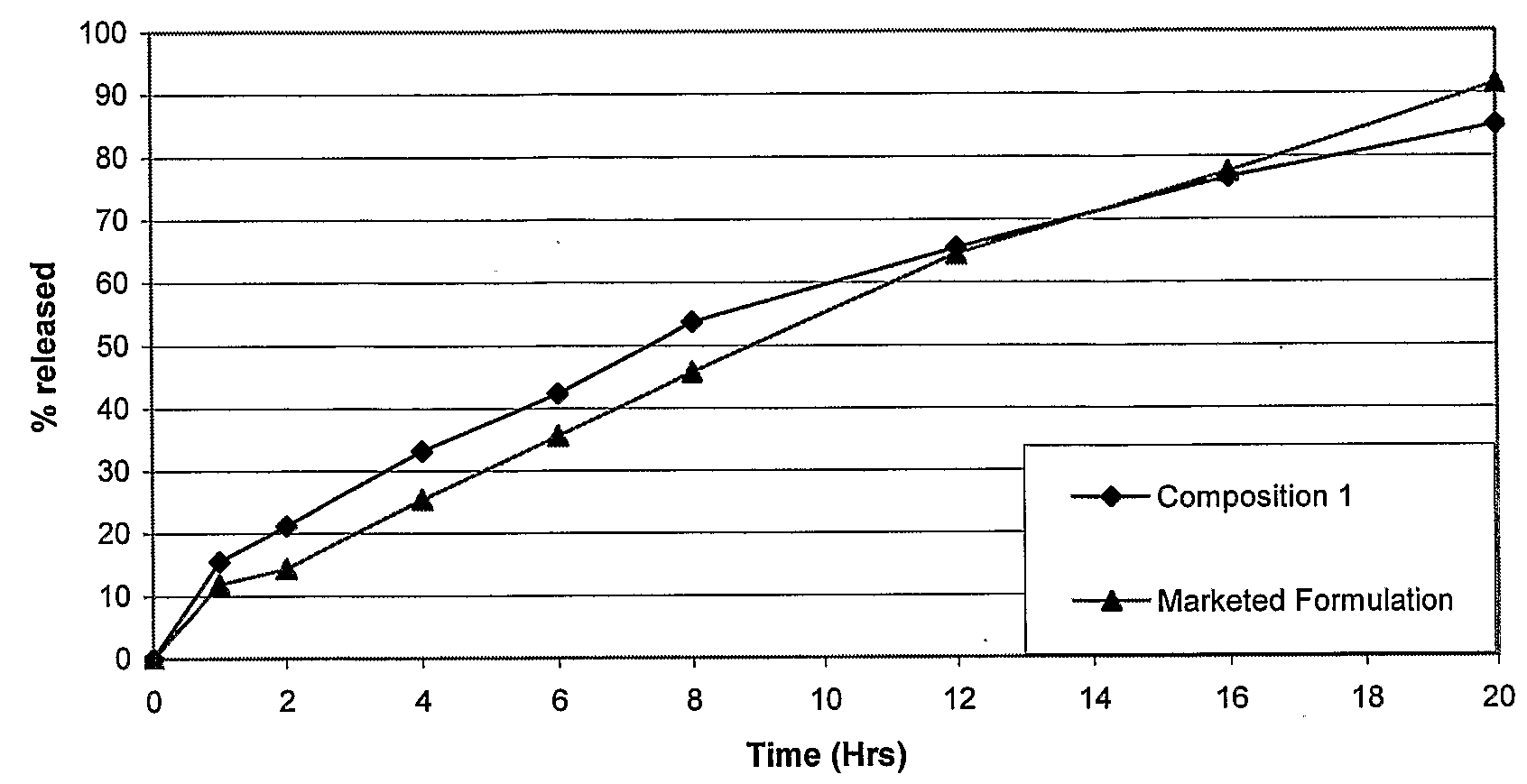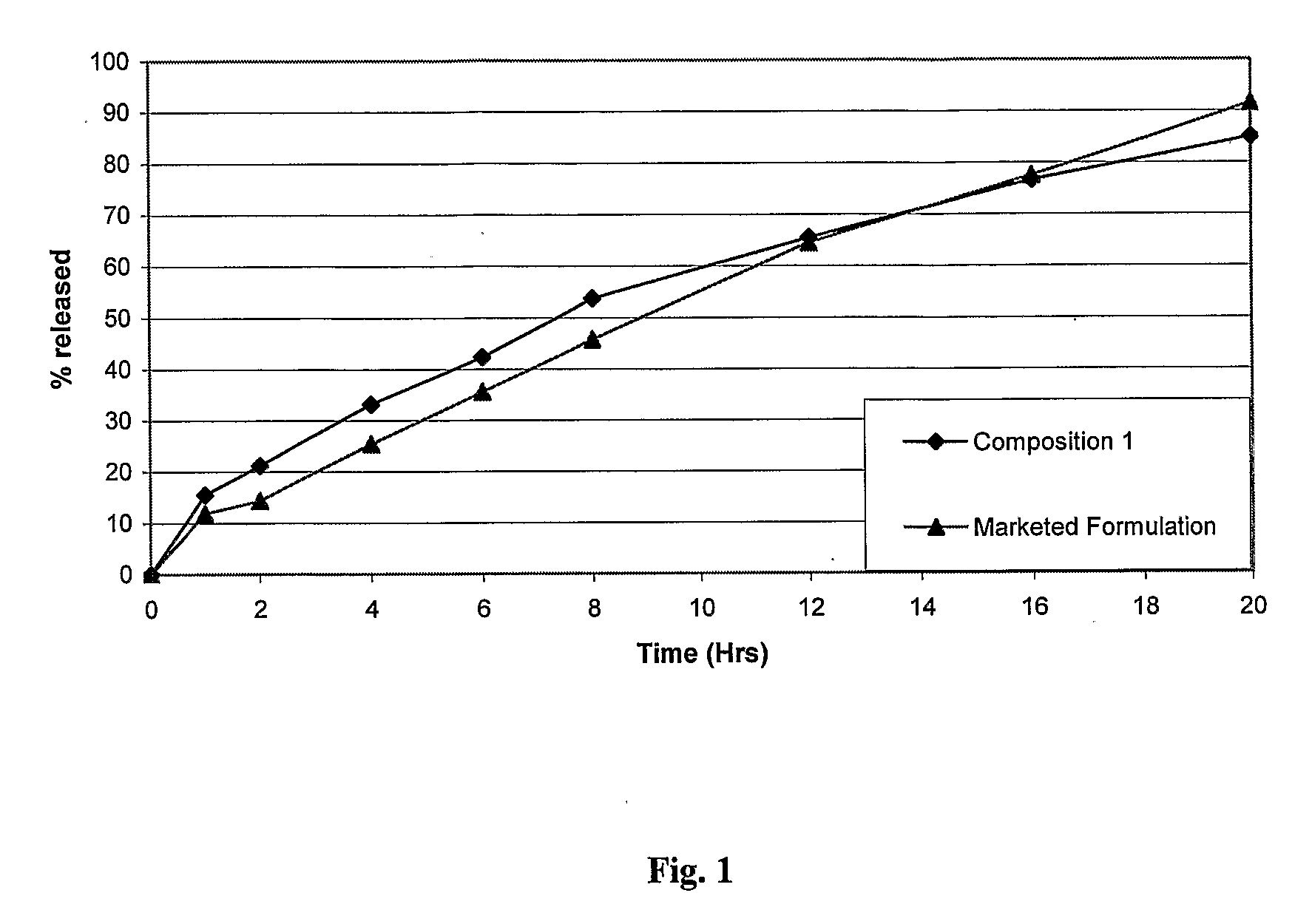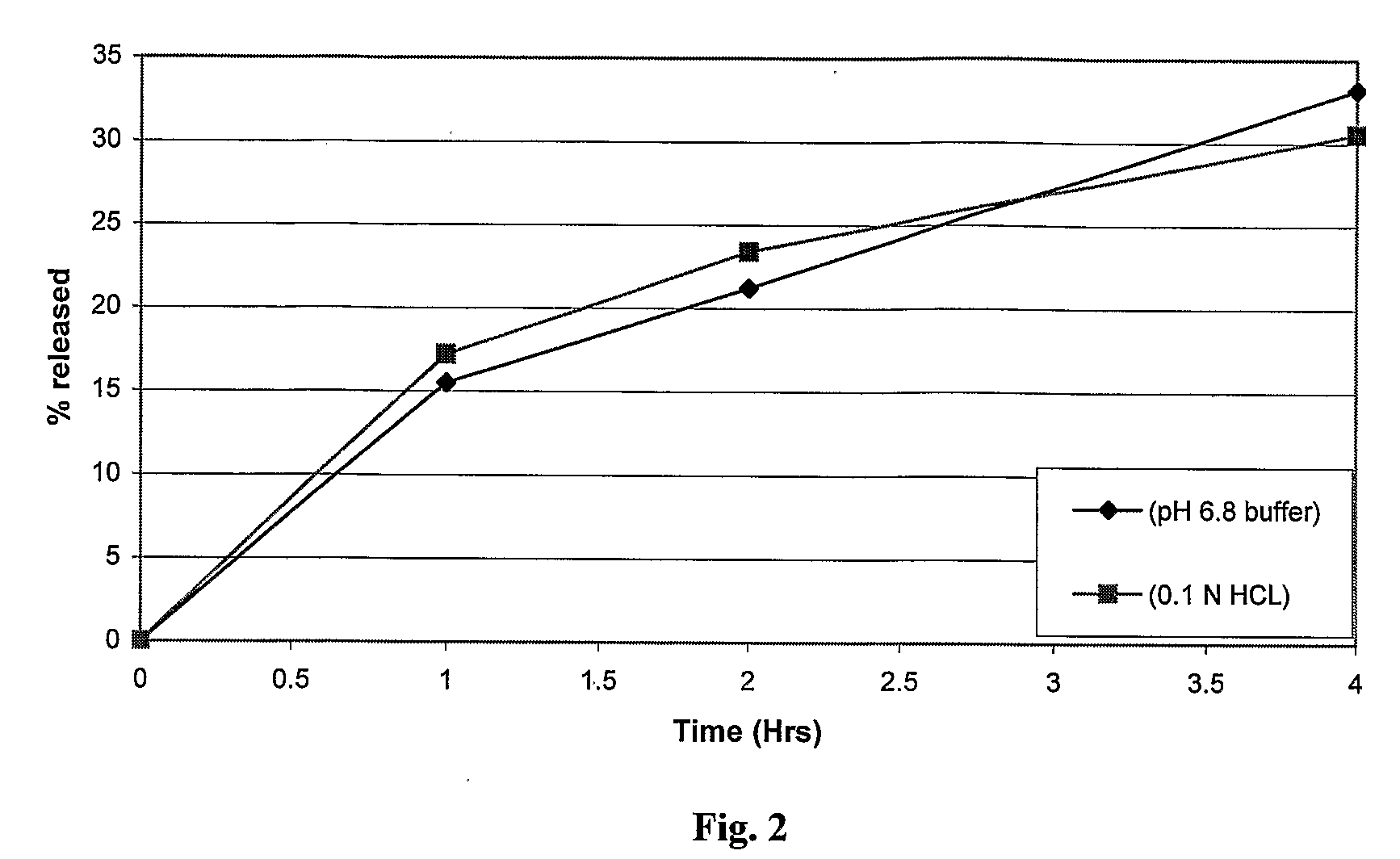Novel sustained release dosage form
a sustained release and active agent technology, applied in the direction of nitrile/isonitrile active ingredients, heterocyclic compound active ingredients, biocide, etc., can solve the problems of inability to meet the needs of use,
- Summary
- Abstract
- Description
- Claims
- Application Information
AI Technical Summary
Problems solved by technology
Method used
Image
Examples
example 1
Preparation and the Drug Release Profile of the Sustained Release Tablet Dosage Form
[0066]This example provides pH independent drug release by formulating a matrix tablet of metoprolol, comprising a pH dependent release from a retarding polymer (Eudragit L100®) and a pH independent release-retarding polymer (Kolidon SR).
TABLE 2Composition of the formulationComposition 1Ingredients(mg / tablet)Metoprolol succinate47.5Poly (methacrylic acid, methyl80methacrylate) (Eudragit L100 ®)Copovidone (Kollidon VA 64)10Kolidon SR70Magnesium stearate2.5Water, Purifiedq.s.
Procedure
[0067]Weighed quantities of metoprolol succinate and Eudragit L100® were granulated using solution of Kollidon VA 64 in water. Granules were mixed with Kolidon SR and magnesium stearate and then compressed on a tablet machine.
[0068]In vitro drug release was studied in 500 ml of pH 6.8 buffer using USP type II dissolution apparatus with 50 rpm rotation speed and temperature being 37±1° C.
[0069]Table 3 shows the drug release...
example 2
pH Independent Release Profile
[0071]To determine the pH independent release behavior in vitro dissolution of composition 1 was carried out in 0.1N HCl. The dosage form is expected to be retained in stomach for a period of 2-4 hours under different physiological conditions. Therefore drug release from this dosage form was studied in 0.1N HCl for a period of 4 hours and the data compared with that in pH 6.8 phosphate buffer to prove pH independence.
TABLE 4In-vitro drug release in different pH mediaComposition 1Composition 1(pH 6.8 buffer)(0.1 N HCL)Time (hrs)% cum. rel.% cum. rel.000115.517.2221.223.4433.1930.55
[0072]No significant difference in the in vitro release profile was seen in the two media, indicating that the composition provides a pH independent in vitro drug release profile for a considerable period of time (FIG. 2).
example 3
Preparation and the Drug Release Profile of the Sustained Release Tablet Dosage Form Comprising Individual Polymers
[0073]
TABLE 5Composition of the formulationComposition 2Composition 3Ingredients(mg / tablet)(mg / tablet)Metoprolol succinate47.547.5Poly (methacrylic acid, methyl150—methacrylate) (Eudragit L100 ®)Copovidone (Kollidon VA 64)1010Kolidon SR—150Magnesium stearate2.52.5Water, Purifiedq.s.q.s.
Procedure
[0074]Weighed quantities of metoprolol succinate and release retardant were granulated using a solution of Kolidon VA64 in purified water. The granules were mixed with balance quantity of release retardant and magnesium stearate and then compressed using a compression machine.
[0075]In vitro drug release was studied in 500 ml of pH 6.8 buffer using USP type II dissolution apparatus with 50 rpm rotation speed, the temperature being 37±1° C.
[0076]Table 6 shows the drug release profile of both composition 4 and 5.
TABLE 6In vitro drug release in pH 6.8 bufferComposition 2Composition 3...
PUM
| Property | Measurement | Unit |
|---|---|---|
| solubility | aaaaa | aaaaa |
| aqueous solubility | aaaaa | aaaaa |
| residence time | aaaaa | aaaaa |
Abstract
Description
Claims
Application Information
 Login to View More
Login to View More - R&D
- Intellectual Property
- Life Sciences
- Materials
- Tech Scout
- Unparalleled Data Quality
- Higher Quality Content
- 60% Fewer Hallucinations
Browse by: Latest US Patents, China's latest patents, Technical Efficacy Thesaurus, Application Domain, Technology Topic, Popular Technical Reports.
© 2025 PatSnap. All rights reserved.Legal|Privacy policy|Modern Slavery Act Transparency Statement|Sitemap|About US| Contact US: help@patsnap.com



